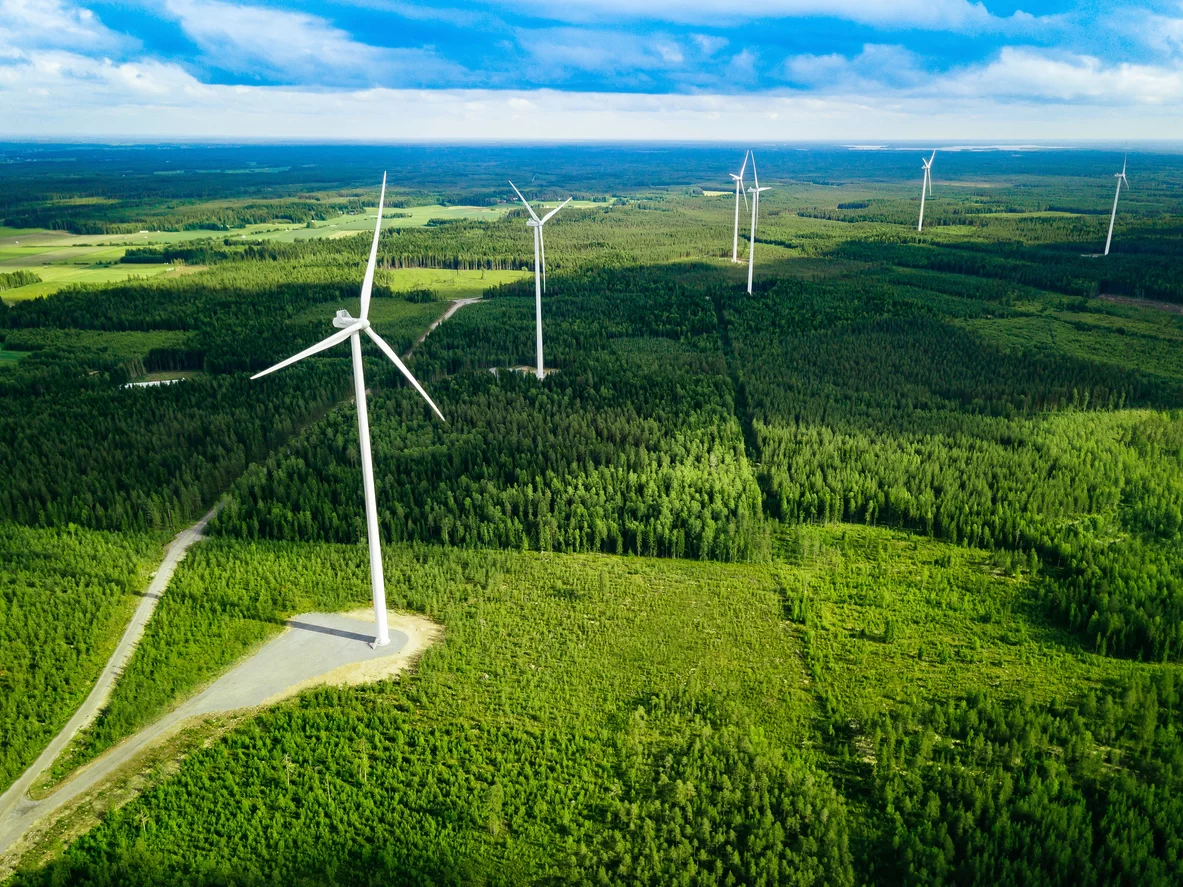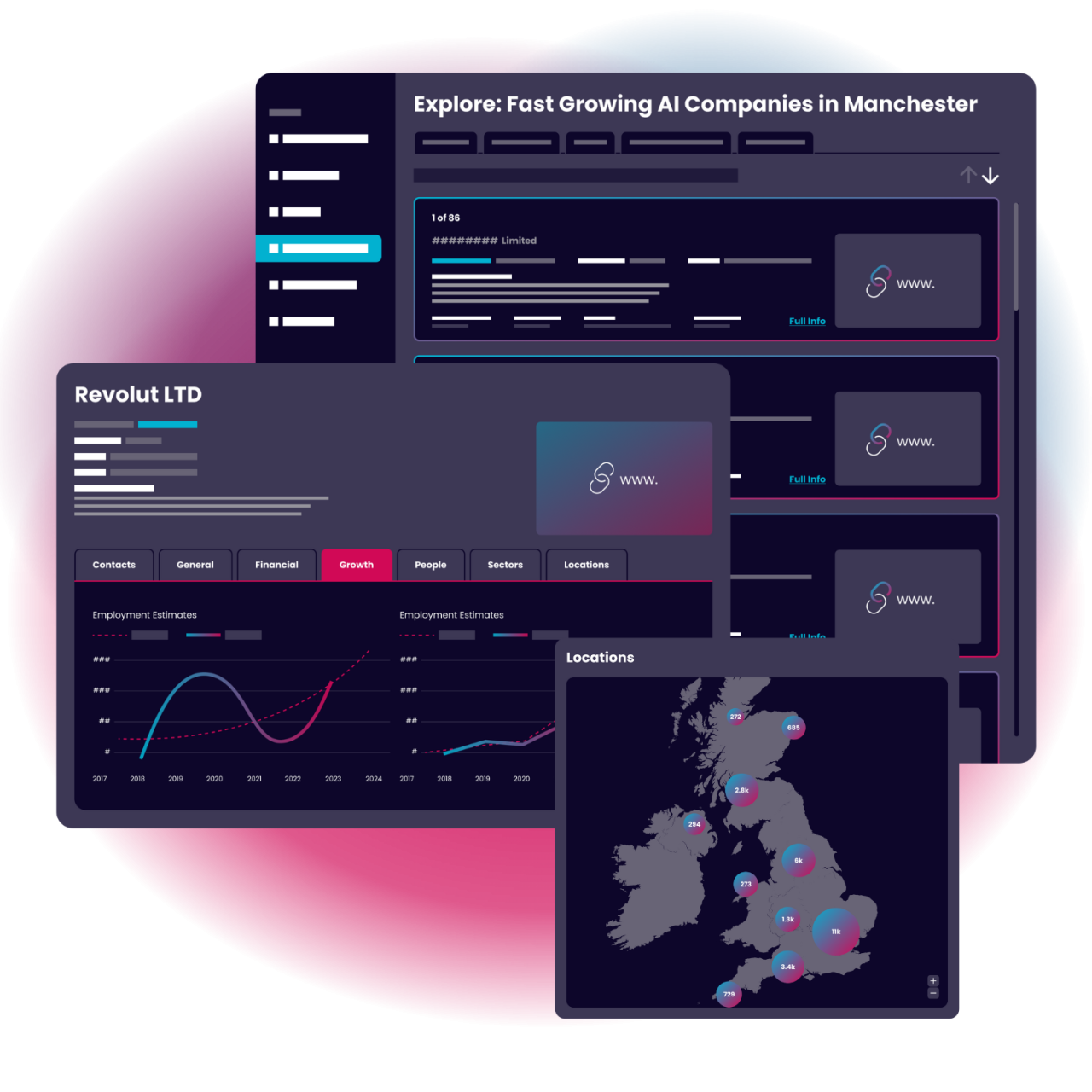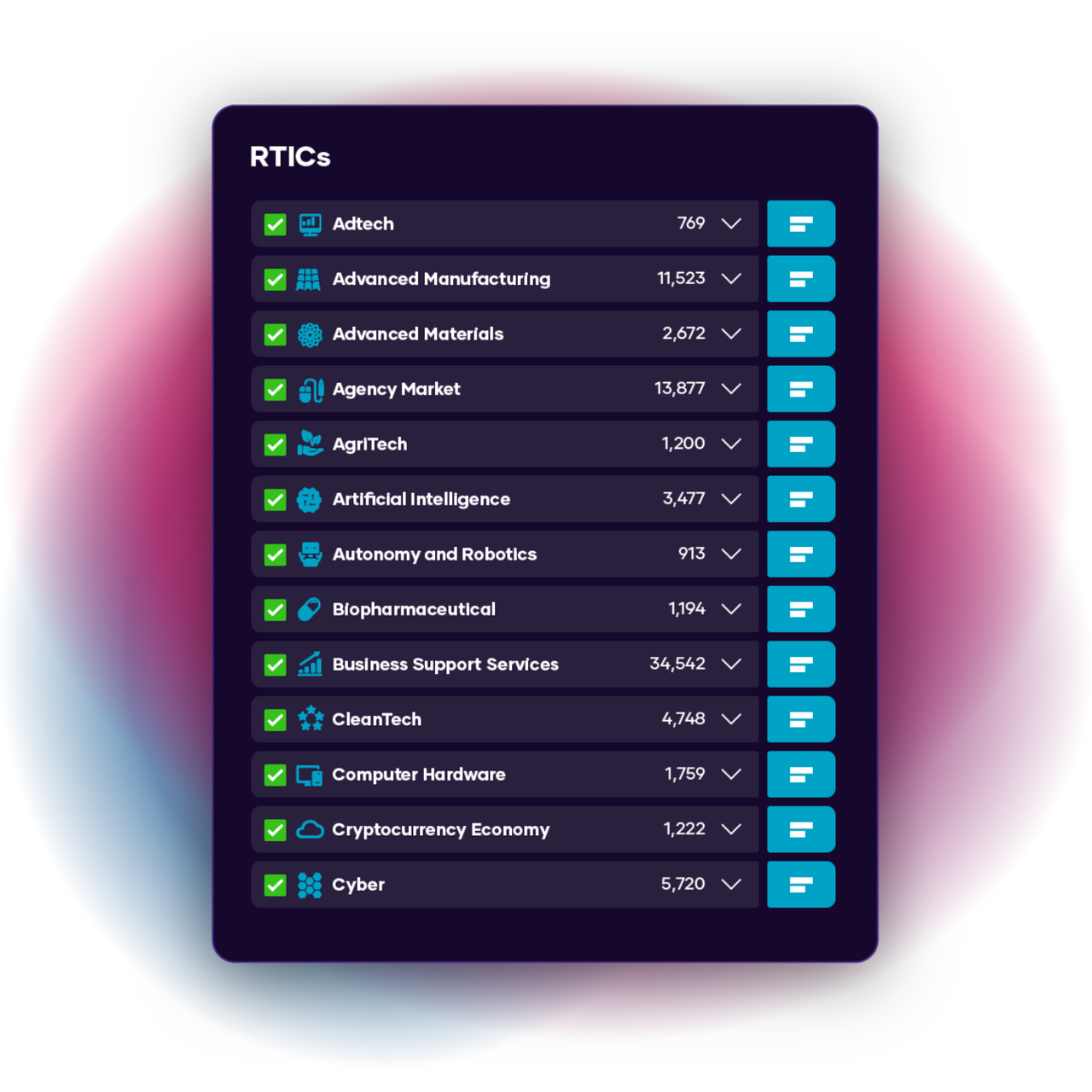Mapping UK Net Zero with CBI Economics

This new report commissioned by the ECIU, makes use of real-time data to showcase the scale and geography of the UK’s Net Zero Economy, highlighting key hotspots and opportunities across the country.


With a strategy laid out to reach our Net Zero targets by 2050, the transition to Net Zero could be the growth story of the century within the UK and beyond.
Discover our Net Zero Real-Time Industrial Classification (RTIC) today and find out more about the verticals, companies and employees that make up this emerging economy.
Fed up with outdated and unreliable data? Get to know the UK economy in real-time and analyse emerging sectors and innovative companies with the power of The Data City’s AI-powered platform.
Net Zero is a unique emerging sector in that it has been established to tackle a specific problem within a specific time frame – reducing greenhouse gases produced by humans.
The true meaning of Net Zero refers to the collective target to balance the amount of greenhouse gases being produced and removed from our atmosphere. The goal here is for humankind to reach a state where the amount we add is no more than we take away – hence the ‘Net’ Zero part.
From this a thriving UK Net Zero economy has taken shape, which coincides with the country’s target to cut emissions of carbon dioxide (CO2) and reach Net Zero by 2050. This ecosystem of verticals and companies in the Net Zero supply chain, which range from low carbon energy generation all the way to green finance, represent a now thriving industry and present big opportunity for economic growth in the future.
Discover real-time data and insights sourced directly from The Data City platform, driven by our innovative Real-Time Industrial Classifications (RTICs). Our RTICs harness the power of web data and machine learning, and are published with industry experts for precision and relevance.
Here are the key facts about the Net Zero sector. The sector has a turnover of £869.2bn currently, has received £27.2bn of investment and the sector is growing at 6.4% per year.
Our industry data goes deep. See the top verticals and specialisms making waves in the UK Net Zero industry today.
Our Net Zero RTIC is made up of 14 individual verticals. The top verticals in this sector include Low Carbon and Renewable Energy Generation, and Waste Management and Recycling. You can find out more about the verticals by downloading our RTIC report, or by signing up for a free trial of The Data City platform.
Companies working to reduce greenhouse gases across the complete spectrum of scales and industries. These include companies working to install heat pumps, solar panels and EV charging infrastructure or those that are renewably powering the very infrastructure that they use. Whether its reducing the carbon impact of food growing or urban construction, sustainably treating industrial waste or restoring the natural environment to be a carbon sink, this RTIC captures the products and services that bring the UK economy closer to Net Zero goals. In order for a company to be included it has to have activities that we can say are confidently aligned with these goals, and lack any other activity that conflicts with this reduction of greenhouse gases. Apart from the Renewable Energy Infrastructure vertical, which includes large companies distributing both traditional and renewable sources of energy, the heavyweights in fossil fuel production and their supply chains have been excluded from the RTIC.
The application and integration of agricultural technologies, innovations and systems that enable farming and food production to reduce, avoid, or sequester greenhouse gas emissions such that the net-balance of emissions becomes zero over a defined period.
Companies providing technology and services for increased energy efficiency and resource usage in built environments and buildings in design and under construction. This ranges from sustainable building materials through to Energy Management Systems.
Companies dedicated to carbon capture, storage and utilisation.
Any company that has a purpose to bring renewable energy to local communities or make current energy and environmental practices more efficient. Communities are both improved and have control in the process through which energy is generated. Not for profits and social enterprises are included.
Companies that develop measures to avoid, track and minimise industrial emissions. This is focused on the aviation and marine industries and involves long term mitigation options rather than short term fixes such as oil spill clean ups.
Companies that are providing services and technology for the capture and later release of energy sources, including electromagnetic storage, high temperature thermal energy storage, chemical energy storage, electrochemical energy storage (batteries), and mechanical storage.
Structured financial activity that invests in net-zero infrastructure and energy or enables people and places have greater access to net zero practices.
Companies developing, manufacturing or installing low carbon and renewable heat sources. These primarily include heat pumps and biomass boilers but also geothermal and solar thermal energy sources.
Organisations and businesses that offer carbon footprint auditing, environmental assessments, tailored reduction plans, carbon tracking, low carbon strategies or other services for monitoring and reducing carbon emissions.
This vertical includes all companies that operate and/or provide renewable and low carbon energy, including nuclear, hydrogen, wind, solar, biogas/biofuels, geothermal and hydropower. This vertical was made with reference to the REPD.
Companies focusing on all levels of the development, technology, infrastructure and directly of LEVs (which emit less than 75 grams of carbon dioxide per kilometre). Including cars, vans, lorries/trucks, bikes, scooters and construction vehicles.
Companies that monitor and treat the effects of pollution on soil and freshwater quality, ensuring that landscapes function as carbon sinks. The treatment methods involve soil stabilisation, bioremediation, reforestation and peatland restoration. Companies that ensure water quality through industrial and sustainable wastewater treatment and recycling are also included.
Companies involved in the medium to large scale generation and distribution of energy, that is either renewable or traditional but made to be more efficient through grid management software or consultancy.
Companies dedicated to solid waste removal, management, processing and recycling.
Based on a growth rate of 6.4%, we expect that this sector could be worth £1,112.5bn by 2027. Below you can see our forecast of the growth of the sector.
The Data City is a UK-based data provider and SaaS platform focusing on emerging sectors, high growth companies, innovation clusters and investment.
Many of the UK’s leading government departments, local authorities, investment firms and policymakers, use The Data City to gain real-time insights that help drive better investment decisions.

“ If you want a more dynamic and innovative view of your economy, you should definitely consider The Data City

“ Through this visual mapping project, Greater Manchester will be able to showcase our success in the digital sector
“ If you care about technology driven economic growth, you should care about RTICs
Dig deeper into the UK’s Net Zero industry with our free snapshot report.
Includes key insights on market size, investment, growth, location and much more. Data updated every month.
At The Data City we use AI and real-time data to map emerging sectors and innovative companies.
Our company database of over 5 million active UK companies houses 400+ Real-Time Industrial Classifications (RTICs) built in partnership with leading experts.
Access market insights, sector trends, employee data, growth stats and investment information for the country’s fastest growing industries.

Keen to dig a little deeper? Sign up for a free trial and get full access our real-time company and sector data.

This new report commissioned by the ECIU, makes use of real-time data to showcase the scale and geography of the UK’s Net Zero Economy, highlighting key hotspots and opportunities across the country.
